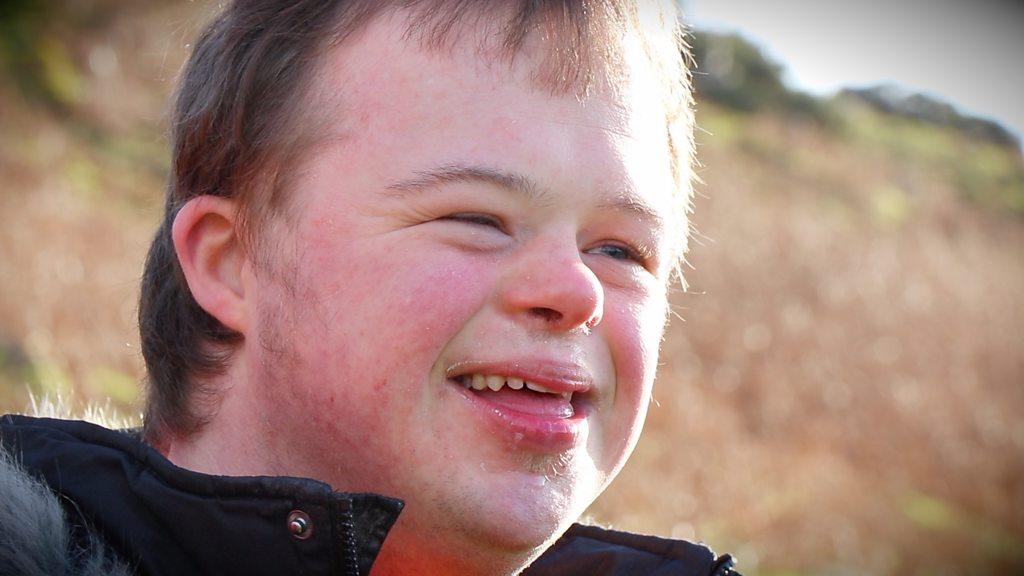The new podcast ‘smashing the box’ of disabled feminism
- Published
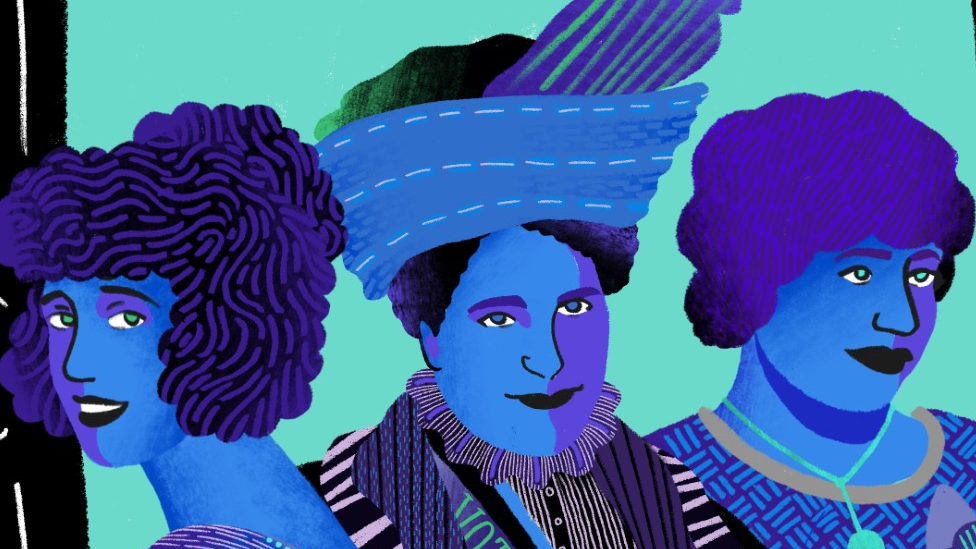
It sounds like the beginning of a vaguely inappropriate joke: what do the silent film actress, the suffragette and the most famous deaf-blind woman in history have in common?
But it's no joke. And in this case, fact is probably stranger than fiction because these three women - Charlie Chaplin's mentor, a brick-throwing activist and a revolutionary - were all disabled feminist pioneers of the early twentieth century.
Now, the inner lives of Mabel Normand, Rosa May Billinghurst and Helen Keller have been laid bare with a new "unsanitised" and fictionalised retelling of true events for a podcast.
Writer Louise Page, 27, from Northumberland, who has complex mental health conditions including bipolar disorder and post-traumatic stress disorder, said she wanted to learn more about disabled early feminists after discovering how radically left-wing Helen Keller was.
Keller remains one of the most famous deaf-blind people in history, known for her activism, lecturing, writing and for being the first deaf-blind person to earn a bachelor of arts degree - but her radical political beliefs are often left out of the narrative.
Page says: "I already knew about the widely told, sanitised, version of Helen Keller's life - which tends to focus on her progress after meeting her teacher Anne Sullivan, and then cuts out before her radical left-wing phase.
"But she was actually part of the Industrial Workers of the World [an international labour union], who were thoroughly socialist and had connections to anarchism."
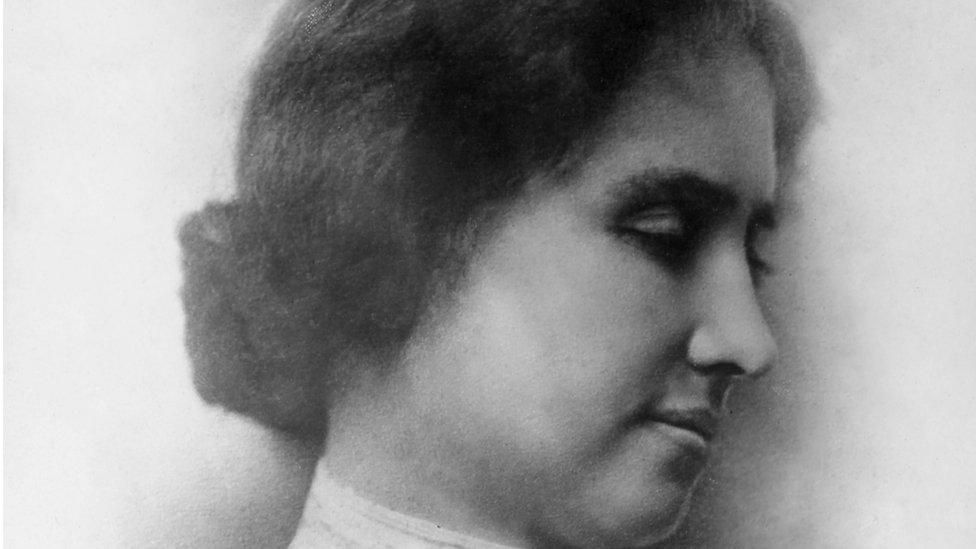
Helen Keller
Page says she was inspired to write about the three women after she spotted connections between them and wanted to give an "honest" account of their lives - including "what some people would see as their faults".
She says: "I think we, as disabled people, are often viewed through a sanitised lens. Society doesn't want to see disabled people, as messy, full beings. The focus is on putting disability, and disabled people, into neat boxes.
"I think that's why people disregard Helen Keller's history of being a radical - because it doesn't fit in the sanitised 'disability' box. That was one of the big motivations when I was writing this piece. Smash the box! No-one belongs in a box."
She pitched her idea to Disability Arts Online as part of their Covid Commissions call-out and it was made into the fictionalised podcast series, New Women.
For Keller's story, Page directly addressed the myth of her "salvation" by her teacher.
In the podcast, she has Keller say: "I hope to never tell that old and worn childhood story of Anne Sullivan teaching me to communicate ever again. I still love Anne, she continues to be a great friend and assistant - but she isn't the miracle worker which some claim she is. She helped to put me on a certain path - but only I could mould myself into the person I am. We are all what we make of ourselves not what others say we are. I am a revolutionary!"
Page says she used factual events as the basis for each of the women's fictionalised sections.
While Keller might be the best known of the three women, thanks to numerous biopics, books and television shows, actor Mabel Normand was hugely famous at the time and remains a pioneer for women in the film industry.
She was a movie star, director and producer and even mentored and worked alongside a then little-known actor called Charlie Chaplin. She protested against the censorship of women's stories in film, and experienced mental health conditions and drug addiction throughout her life.
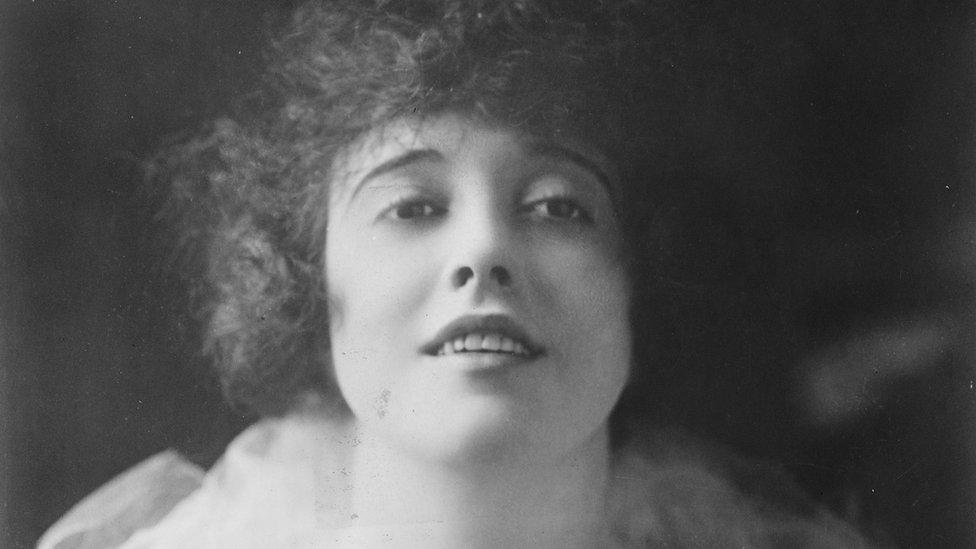
Mabel Normand
She was also the first "damsel in distress" to be tied to train tracks in the now iconic film trope, and one of the first actors to have her name in the title of her films - including Hello, Mabel, Wished on Mabel and Mabel Lost and Won.
Throughout the podcast series, Page has Normand talk candidly about issues with men, sex and her film career before expressing her happiness at finally starting her own production company.
"No more bathing beauties. No more pretending to be stupid. I will make the films I want to make, I will make them my way. About lady adventurers, tomboys with no regard for decorum, and I will tell stories about all the women who don't fit into a box."
Normand starred in 167 film shorts and 23 full-length features (including 12 with Chaplin and 17 with Roscoe "Fatty" Arbuckle) and was one of the first silent film stars to also work as her own director, although her short-lived production company, the Mabel Normand Feature Film Company, only made one film.
Although she is thought to have directed at least 26 films, she was hugely underpaid compared to her male colleagues and her successful film career was later eclipsed by her drug addiction and links to several high-profile Hollywood scandals, including two murders. She died of tuberculosis aged 37 in 1930.
While Normand was leading the way for women in Hollywood, suffragette and wheelchair-user Rosa May Billinghurst used her adapted hand-tricycle to ram her way through police lines in London.
A staunch social campaigner, Billinghurst had contracted polio as a child, leaving her partially paralysed.
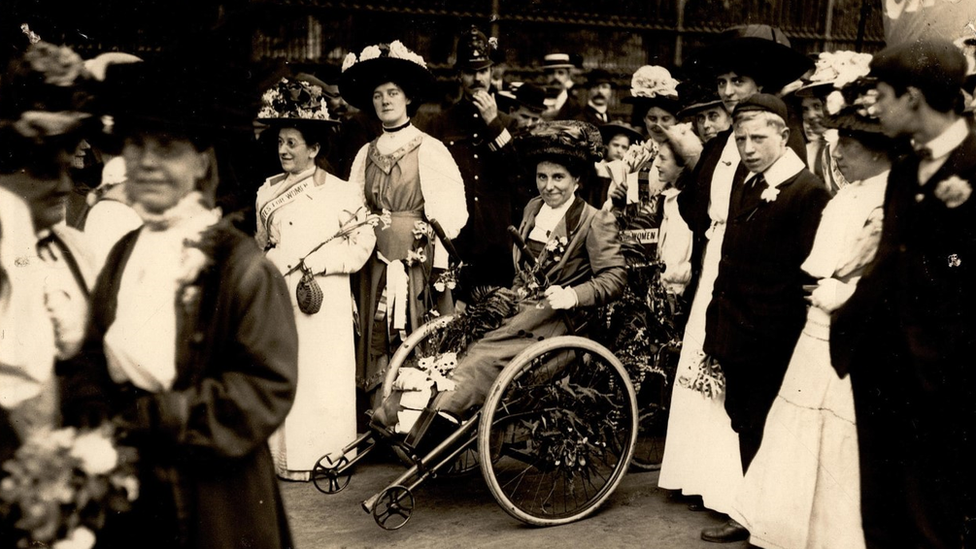
Rosa May Billinghurst in her specially adapted wheelchair
Her use of a wheelchair soon gained her the nickname "the cripple suffragette" in the national press, particularly after her arrest and imprisonment at Holloway Prison.
"An account, from a fellow suffragette, of her hiding bricks to smash windows with, in her wheelchair, was what made me know I absolutely had to write about her," says Page.
In one episode Billinghurst speaks to the audience while vomiting and bleeding in hospital after a hunger strike in prison, which actually happened to her in 1913. In another, she describes the police officers attempting to surround the protesting suffragettes: "In these situations I am invaluable. Being in a wheelchair is highly useful… the hard metal of this clumsy thing is no match against policemens' shins."
To create the series, Page says she undertook "a lot" of research - mostly book-based, and where possible from primary sources, and she also used documentaries and some silent film footage from the period.
But it was personal experience that led Page to make the connection between the women, their disabilities and their feminism.
"I often feel that my views and work on those two areas, feminism and disability, are often not welcome in the same forum," Page says. "For example, I am often commissioned to write about feminism, or about disability, but rarely about them both together - unless it's a project I've pitched myself.
"I think that these experiences echo something that is a wider issue within feminism - that intersectionality in general is rarely considered top of the to-do list for feminism."
The term "intersectionality" was coined by American academic Kimberlé Crenshaw in the late 1980s and examines how race, class, gender, disability and other personal characteristics "intersect" with one another and overlap.
"So much of feminism is still inaccessible to disabled people," Page says. "So I wanted to show three women who experienced disability, and held feminist views, right at the beginning of the movement - to show that it is something that has always existed and that there needs to be room made for disabled feminists today."
You can listen to the New Women podcast series, external at Disability Arts Online, external.
For more disability news, follow BBC Ouch on Twitter, external and Facebook, external and subscribe to the weekly podcast on BBC Sounds.

Related topics
- Published7 December 2020
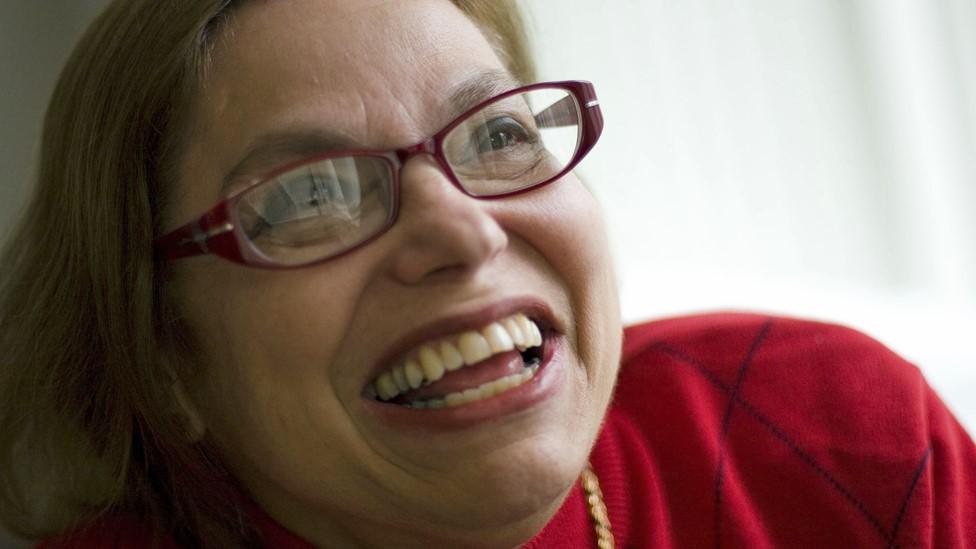
- Published9 December 2020
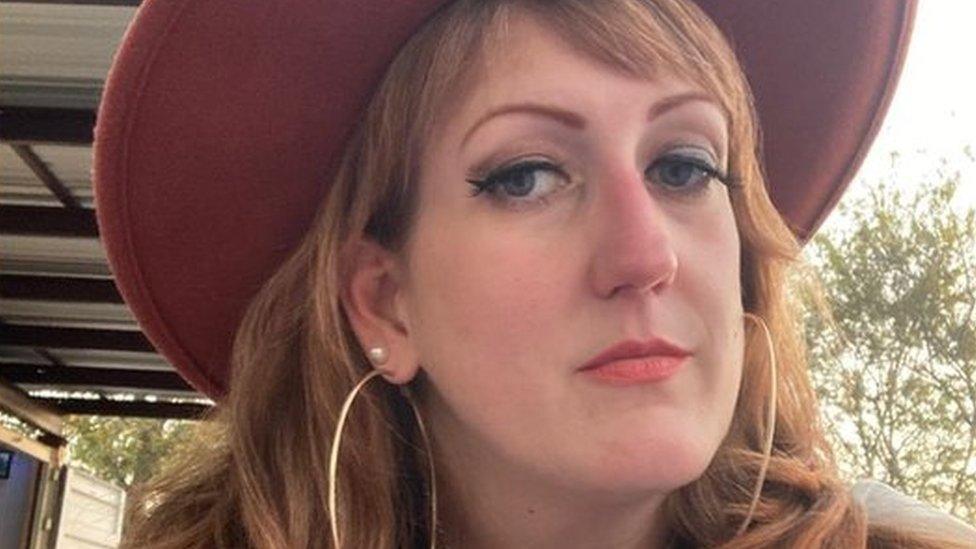
- Published6 December 2020
